We post news and comment on federal criminal justice issues, focused primarily on trial and post-conviction matters, legislative initiatives, and sentencing issues.

WHAT I THINK THE SUPREMES GOT WRONG
The Supreme Court continued emptying its docket of criminal cases Monday, disposing of Greer v. United States and United States v. Gary in a single decision.
 You recall that two summers ago (doesn’t that seem like a lifetime?), the Supreme Court held in Rehaif v. United States that when someone is charged with being a prohibited person in possession of a gun, the government has to prove that the person both knew he or she possessed a gun and that he or she was a member of the prohibited class. There are about nine classes of people who cannot possess guns, including people who use illegal drugs, people illegally in the country, people subject to a domestic protection order, fugitives, and – by far the most common – convicted felons.
You recall that two summers ago (doesn’t that seem like a lifetime?), the Supreme Court held in Rehaif v. United States that when someone is charged with being a prohibited person in possession of a gun, the government has to prove that the person both knew he or she possessed a gun and that he or she was a member of the prohibited class. There are about nine classes of people who cannot possess guns, including people who use illegal drugs, people illegally in the country, people subject to a domestic protection order, fugitives, and – by far the most common – convicted felons.
In Rehaif, the defendant was a foreign student whose student visa had expired. He liked to shoot at a local range, and while he rented a range gun while he was there, he bought his own ammo. he had a partial box in his apartment when the Feds – tipped by a concerned citizen who figured that because Mr. Rehaif was Middle Eastern, he must be a terrorist – broke down his door. The ammo was enough for the Feds to charge him, but when the case got to the Supreme Court, the Justices reversed the practice in every Circuit, holding that the government had to show that Mr. Rehaif knew he was in the country illegally.
 There has been a land-office business since then of prisoners filing motions claiming they had been convicted without being told the government had to prove they had knowledge of their status. Section 922(g)(1), the “felon-in-possession” subsection of the statute says it is unlawful “for any person who has been convicted in any court of, a crime punishable by imprisonment for a term exceeding one year” to possess a gun. Most courts were rejecting the claims: after all, it’s hard to say you were harmed by not being told the government had to prove you knew you had been convicted of a crime punishable by more than a year in prison if you previously served 5-to-10 at San Quentin.
There has been a land-office business since then of prisoners filing motions claiming they had been convicted without being told the government had to prove they had knowledge of their status. Section 922(g)(1), the “felon-in-possession” subsection of the statute says it is unlawful “for any person who has been convicted in any court of, a crime punishable by imprisonment for a term exceeding one year” to possess a gun. Most courts were rejecting the claims: after all, it’s hard to say you were harmed by not being told the government had to prove you knew you had been convicted of a crime punishable by more than a year in prison if you previously served 5-to-10 at San Quentin.
Prisoners challenging their felon-in-possession convictions with Rehaif claims made on appeal were largely being held to having to prove Fed.R.Crim.P. 52(b) “plain error.” The tough prong of “plain error” is proving that if they had been properly advised by the court, the outcome would have been different. For people whose appeals were already over, they had to prove something related, that they were actually innocent of the 18 U.S.C. § 922(g) offense, that is, they can show that they truly did not know they were in the prohibited class.
Notice this: it is not the case that the prosecutor has to prove you knew you could not possess a gun. Everyone is presumed to know the law. Instead, the government only has to show you didn’t know you were a convicted felon.
In Greer and Gary, the Supreme Court said, it was undisputed that Rehaif errors occurred during their district court proceedings and that the errors were plain. But to satisfy the prong of “plain error,” you must show that your “substantial rights” were violated. Thus, the Supreme Court said,
Greer must show that, if the District Court had correctly instructed the jury on the mens rea element of a felon-in-possession offense, there is a “reasonable probability” that he would have been acquitted. Gary must show that, if the District Court had correctly advised him of the mens rea element of the offense, there is a “reasonable probability” that he would not have pled guilty.
Greer and Gary have not carried that burden. Both had been convicted of multiple felonies prior to their respective felon-in-possession offenses. Those prior convictions are substantial evidence that they knew they were felons. And neither defendant argued or made a representation on appeal that he would have presented evidence at trial that he did not in fact know he was a felon when he possessed a firearm.
Yeah, that makes perfect sense.
But there’s a fly in the ointment…
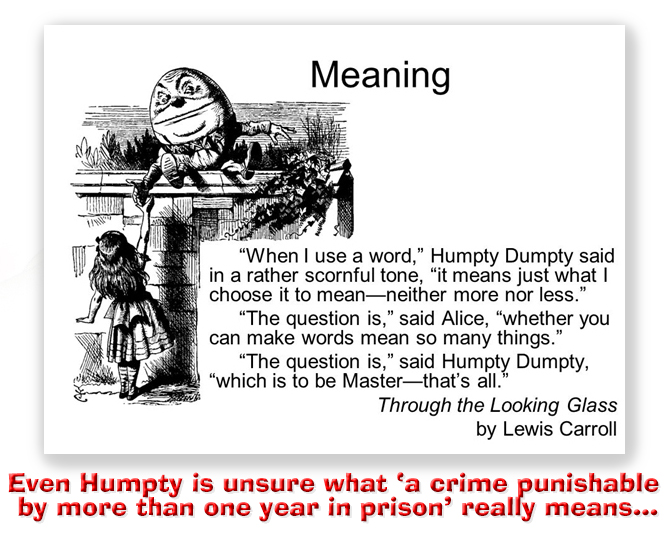 Statutes can be complex, and a straightforward phrase in one section may have a definition that is anything but straightforward in another. The § 922(g)(1) phrase “crime punishable by imprisonment for a term exceeding one year” is not nearly as straightforward as its plain text might suggest.
Statutes can be complex, and a straightforward phrase in one section may have a definition that is anything but straightforward in another. The § 922(g)(1) phrase “crime punishable by imprisonment for a term exceeding one year” is not nearly as straightforward as its plain text might suggest.
That’s because a “crime punishable by imprisonment for a term exceeding one year” is not just a crime punishable by more than a year. Instead, it is a crime defined in detail by § 921(a)(20). Specifically, a “crime punishable by imprisonment for a term exceeding one year” does NOT include Federal or State offenses pertaining to antitrust violations, unfair trade practices, restraints of trade, or other similar offenses relating to the regulation of business practices. Nor does it include any state offense classified by the laws of that state as a misdemeanor and punishable by a term of imprisonment of two years or less.
Beyond that, an offense is not a “crime punishable by imprisonment for a term exceeding one year” if it has been expunged or set aside (unless the expungement expressly prohibits possession of guns), or if the person has been pardoned, or if he or she has had civil rights restored (unless the restoration provides the person cannot possess a gun).
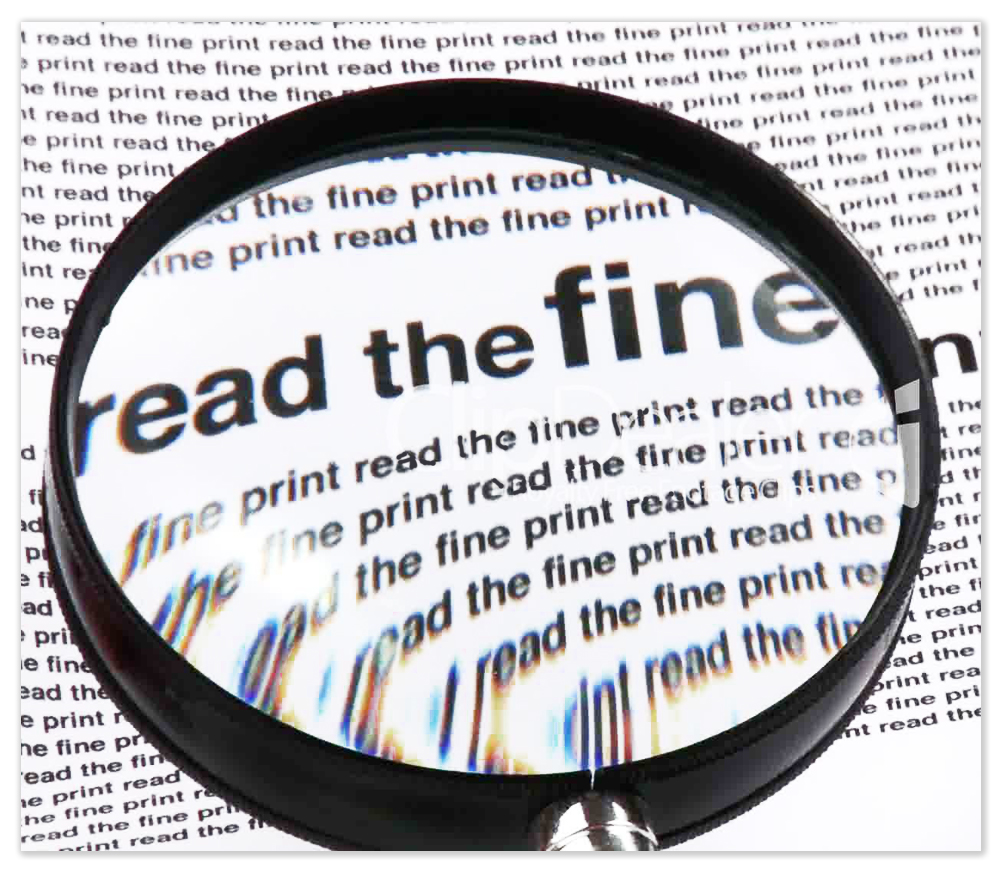 That’s a lot of fine print. The definition is complex, and a person thus can easily believe that his or her civil rights have been restored when they have not been. For example, if you can vote, is that enough for restoration of rights? How about run for office? Sit on a jury?
That’s a lot of fine print. The definition is complex, and a person thus can easily believe that his or her civil rights have been restored when they have not been. For example, if you can vote, is that enough for restoration of rights? How about run for office? Sit on a jury?
The complexity of the definition is clearly reflected in a series of cases from the early 1990s that tried to parse the definition of “crime punishable by imprisonment for a term exceeding one year”, only a few years after Congress rolled out the complex definition as part of the Firearms Owners Protection Act.
FOPA was first introduced in 1979 in response to perceived deficiencies in existing law concerning firearms and enforcement abuses by the Bureau of Alcohol, Tobacco & Firearms. Congress wanted to direct ATF’s enforcement efforts away from what it viewed as unintentional and technical violations of the Gun Control Act of 1968 and toward more “serious, intentional criminals.” One of the perceived problems with existing law was the judicial interpretation of “crime punishable by imprisonment for a term exceeding one year.”
Prior to FOPA, what constituted a “crime punishable by imprisonment for a term exceeding one year” was a question of federal law. In fact, in Dickerson v. New Banner Institute, Inc., the Supreme Court pointed out the difficulty of enforcing a rule that made firearm disabilities dependent upon state statutes that vary widely from state to state. But, as the Sixth Circuit dryly observed in United States v. Cassidy, “despite this warning, Congress expressly overruled Dickerson by making ‘convicted felon’ status dependent upon state law.”
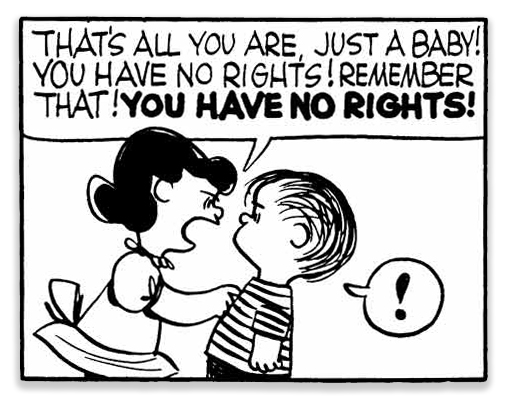 Cal Cassidy thought that his restoration of rights certificate Ohio issued him after he got out of prison meant that his rights had been restored. His district court agreed and threw out a felon-in-possession charge. And the Sixth Circuit agreed that he did have a full restoration of civil rights as contemplated by 18 USC § 921(a)(20) “because, after his release from prison, the rights to vote, to serve on a jury and to seek and hold public office were restored to him.” However, a provision in Ohio did not let people convicted of drug crimes (Cal had been a pot dealer) from possessing a gun, the restoration was not enough to take his prior offense out of the “crime punishable by imprisonment for a term exceeding one year” category.
Cal Cassidy thought that his restoration of rights certificate Ohio issued him after he got out of prison meant that his rights had been restored. His district court agreed and threw out a felon-in-possession charge. And the Sixth Circuit agreed that he did have a full restoration of civil rights as contemplated by 18 USC § 921(a)(20) “because, after his release from prison, the rights to vote, to serve on a jury and to seek and hold public office were restored to him.” However, a provision in Ohio did not let people convicted of drug crimes (Cal had been a pot dealer) from possessing a gun, the restoration was not enough to take his prior offense out of the “crime punishable by imprisonment for a term exceeding one year” category.
A year later, the Ninth Circuit ruled that Michigan law fully restores an ex-felon’s civil rights, so Mike Dahms’ possession of two shotguns on his Montana ranch was not a federal crime. But year after that, the Sixth Circuit held that Ron Driscoll’s right had not been restored by Michigan because – overlooked by the Ninth Circuit – a person with a prior felony could be ejected from a Michigan jury for “cause,” not under laws enacted by the legislature but rather under the Michigan Court Rules, which the Circuit ruled had “the force of state law.”
And how about that provision that a “crime punishable by imprisonment for a term exceeding one year” does not include “any federal or state offenses pertaining to antitrust violations, unfair trade practices, restraints of trade, or other similar offenses relating to the regulation of business practices?”
Greg Reyes was president of a publicly-traded company, where he oversaw the back-dating of some options (so management could cash in on a high stock price). That was a felony, but Greg paid his debt and moved on. Years later, he wanted to buy a hunting rifle but could not. He sued the government, contending that his crime (which carried a five-year max sentence) was not a “crime punishable by imprisonment for a term exceeding one year” because it was an offense “relating to the regulation of business practices” (see § 921(a)(20)(A)). The government fought him hammer and tong, but the District Court ruled that while Greg’s “offenses failed the elements prong of the business practices exception test, that failure was not fatal since each of his predicate business practices offenses possessed the requisite primary purpose under the business practices exception, and, hence, each of his predicate offenses pertained to antitrust violations, unfair trade practices, or other similar offenses relating to the regulation of business practices under § 921(a)(20)(A) and thus did not trigger the application of the felon-in-possession statute.”
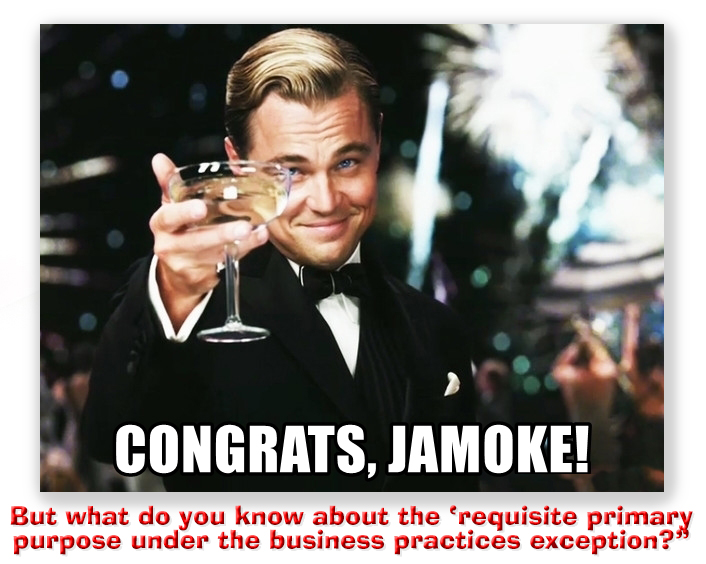 The point is simply this: determining what is or is not a “crime punishable by imprisonment for a term exceeding one year” is not a simple task. Courts of Appeal disagree on whether a particular state’s patchwork of laws and rules restore rights unconditionally. Lawyers disagree on it. When it comes to some of the really fine points – such as a securities offense a “similar offense relating to the regulation of business – even the government can be wrong. And the “elements prong” and “primary purpose” tests for regulation of business practices? Do you think some jamoke who buys a piece at a gun show understands any of that?
The point is simply this: determining what is or is not a “crime punishable by imprisonment for a term exceeding one year” is not a simple task. Courts of Appeal disagree on whether a particular state’s patchwork of laws and rules restore rights unconditionally. Lawyers disagree on it. When it comes to some of the really fine points – such as a securities offense a “similar offense relating to the regulation of business – even the government can be wrong. And the “elements prong” and “primary purpose” tests for regulation of business practices? Do you think some jamoke who buys a piece at a gun show understands any of that?
All of the cases cited predate Rehaif, which holds that a defendant has to actually know he or she committed a “crime punishable by imprisonment for a term exceeding one year”. But events occurring well after the defendant gets out of prison may retroactively turn the “crime punishable by imprisonment for a term exceeding one year” into a crime that no longer disqualifies. If judges, lawyers, and savvy business people can be confused about it, how about your average jamoke who figures that his rights have been restored, because after all he can now vote, hold a driver’s license, hold employment, and do whatever else he may want to do in his home state?
In Greer, Justice Kavanaugh wrote:
Federal law prohibits the possession of firearms by certain categories of individuals, including by those who have been convicted of a crime punishable by more than one year in prison. See 18 USC §§922(g), 924(a)(2). In Rehaif v. United States, this Court clarified the mens rea requirement for firearms possession offenses, including the felon-in-possession offense. In felon-in-possession cases after Rehaif, the Government must prove not only that the defendant knew he possessed a firearm, but also that he knew he was a felon when he possessed the firearm…
In a felon-in-possession case where the defendant was in fact a felon when he possessed firearms, the defendant faces an uphill climb in trying to satisfy the substantial-rights prong of the plain-error test based on an argument that he did not know he was a felon. The reason is simple: If a person is a felon, he ordinarily knows he is a felon. “Felony status is simply not the kind of thing that one forgets.”
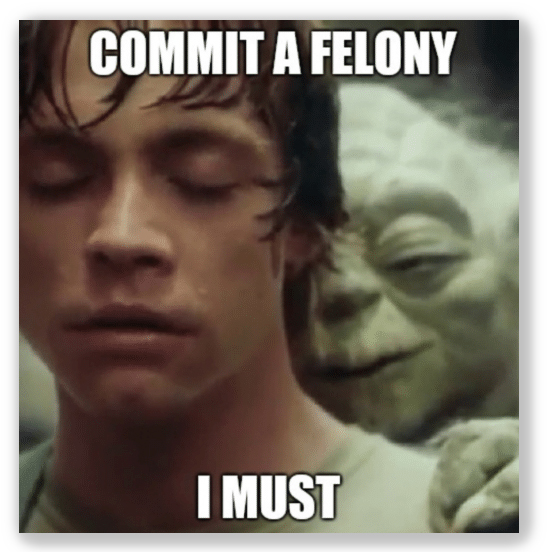 It probably is unfortunate that courts (and lawyers) too easily fall into the convenient-but-incorrect shorthand of referring to the “crime punishable by imprisonment for a term exceeding one year” standard as “felon-in-possession.” One may know he or she is a felon, but that hardly translates to knowing whether one has fallen afoul of the rather technical snare of having committed a “crime punishable by imprisonment for a term exceeding one year”.
It probably is unfortunate that courts (and lawyers) too easily fall into the convenient-but-incorrect shorthand of referring to the “crime punishable by imprisonment for a term exceeding one year” standard as “felon-in-possession.” One may know he or she is a felon, but that hardly translates to knowing whether one has fallen afoul of the rather technical snare of having committed a “crime punishable by imprisonment for a term exceeding one year”.
The foregoing does not make the Supreme Court’s conclusion that a defendant making a Rehaif claim for the first time on appeal or in a habeas corpus filing must show that, but for the error, he or she would have been found to be actually innocent of the § 922(g)(1) offense. However, the factual showing is anything but straightforward.
Greer v. United States, Nos. 19-8709 and 20-444, 2021 U.S. LEXIS 3118 (June 14, 2021)
United States v. Gary, Nos. 19-8709 and 20-444, 2021 U.S. LEXIS 3118 (June 14, 2021)
Rehaif v. United States, Case No. 17-9560, 588 U.S. —, 139 S. Ct. 2191, 204 L.Ed.2d 594 (2019)
Reyes v. Sessions, 342 F. Supp. 3d 141 (D.D.C. 2018)
United States v. Cassidy, 899 F.2d 543 (6th Cir. 1990)
United States v. Dahms, 938 F.2d 131 (9th Cir. 1991)
United States v. Driscoll, 870 F.2d 1472 (6th Cir. 1992)
– Thomas L. Root

